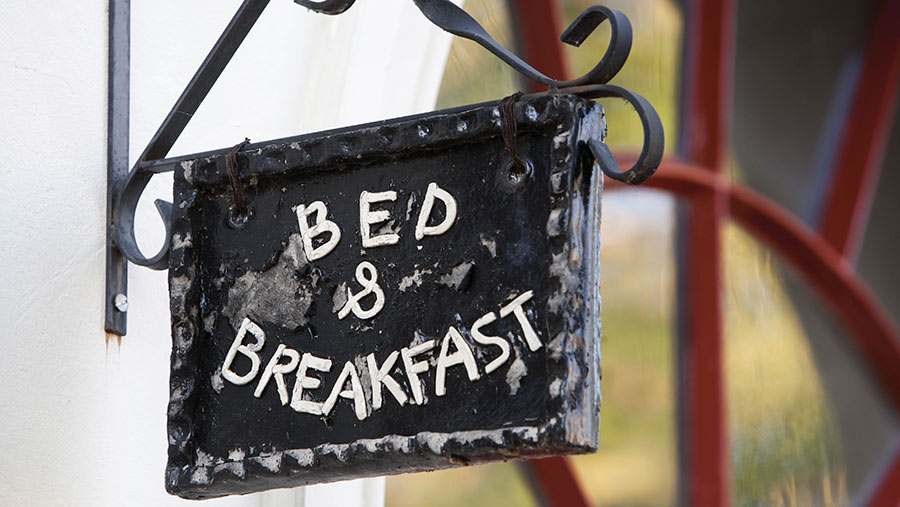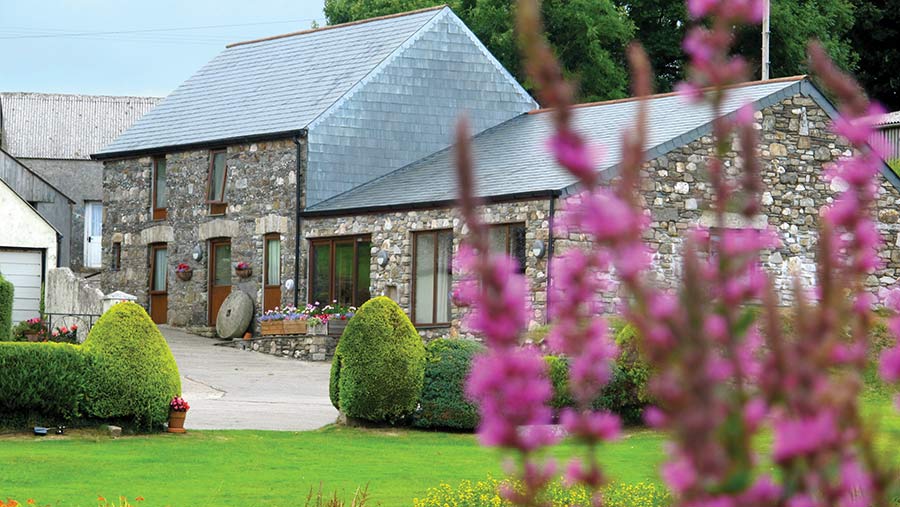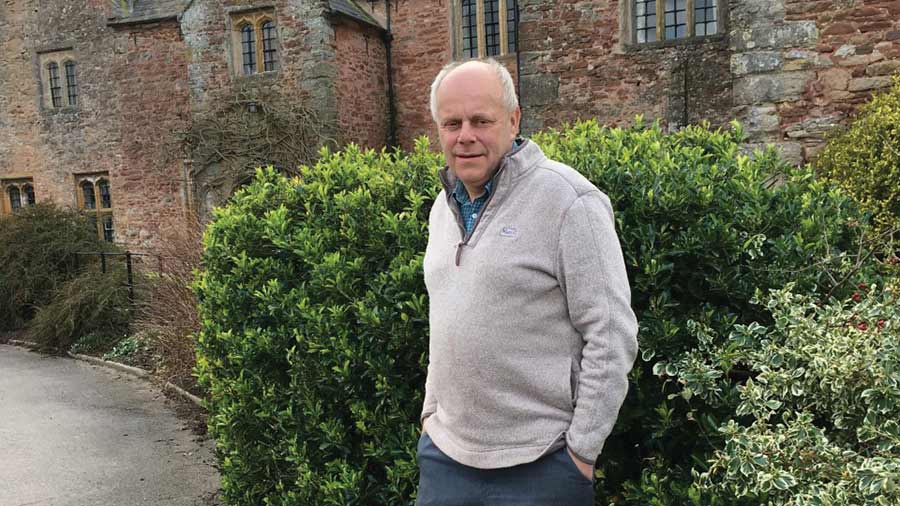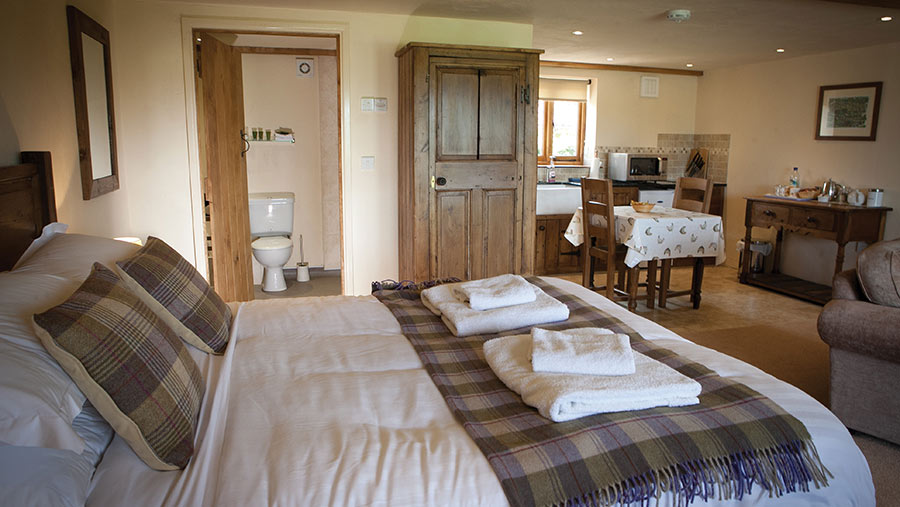How to make your farm B&B appeal to the staycation market
 © Adobe Stock
© Adobe Stock The coronavirus pandemic hit the UK bed and breakfast (B&B) market harder than other forms of staycation such as camping, glamping and holiday lets.
Social distancing between groups within one property was more difficult than in some other types of holiday accommodation and guests stayed away at first, says FarmStay chairwoman Kay Barriball.
See also: How farm retailers are retaining lockdown customers
However, where businesses adapted to create safe distancing, the upsurge in the staycation market had compensated for empty rooms during the first lockdown.
Ms Barriball’s Polhilsa Farm, near Callington, Cornwall, eventually achieved its best financial year as restrictions were relaxed through the summer.

Polhilsa Farm © Kay Barriball
Market
The shift towards staycations will remain a major factor for the coming years, Ms Barriball reckons.
Concerns over Covid-19 will linger and, with the public still coming to terms with Brexit, more holidaymakers will opt to stay in the UK in the future.
However, she suggests that despite the buoyant market, farm businesses looking to diversify still needed to understand the key points involved in setting up and running a B&B.
Income and costs
- Polhilsa Farm shared room rate £90 (for two people, per night)
- VAT £18
- Food cost £7
- Cleaning (1 hour/room) £10
- Cleaning products £2.50
- Total direct costs £40 (capital costs must be considered separately)
- FarmStay registration cost – a flat rate £299 for one bedroom, then £60 for each room up to 10 rooms
Location
B&Bs can be successful almost anywhere, but it is important to sell the strengths of the area as much as the accommodation itself.
If the property is remote, it is particularly important to get the marketing right. Be clear at the outset as to what the property offers and what it doesn’t, to avoid disappointed guests.
Highlight the peace and seclusion the property offers. A working farm can sometimes be an attraction in its own right and adding educational material can be a selling point.
Planning
Change of use will be required for the property even if no major alterations are carried out. Any renovations such as new entrances and en-suites require careful forethought because full planning permission may be required.
Assessing what scale the B&B should be on is a good starting point. It is important not to be too greedy. While more rooms mean more guests, the extra costs might affect margins.
In contrast, a decent-sized room is a more relaxing environment and will push up the positive reviews. Larger rooms also give more scope for flexibility. A king-sized bed and pull-out singles can be marketed as a family room.
Since the pandemic began, B&B visitors have been more concerned about private facilities. Most guests will expect an en-suite bathroom. It may also be worth considering whether rooms could have external entrances to avoid mixing in hallways.
The dining area is the key point where all guests mix and this has become a more important factor to consider. Even after we have moved on from Covid-19, visitors will be concerned about close contacts.
It may be necessary to open up a larger space for dining or provide meals in rooms.
Facilities
It is important not to scrimp. Guests like added touches such as fresh milk and a range of teas, coffee and locally produced biscuits.
TVs, wi-fi and plenty of sockets to charge phones and laptops are necessities.
Rooms should also include information, not just about local attractions, but local transport like taxis, trains and buses – often guests don’t think about the remoteness of the location.
Rules and regulations
Insurance
Standard home insurance policies are not adequate once the house has paying guests. As well as business buildings and content insurance, public liability cover is also required.
Business interruption deals with a range of issues including the potential impact of disease. The policy will cover a list of diseases and it is essential to check the main ones, including Covid-19 and variants, are there.
Food hygiene
Because B&Bs provide meals for paying guests, they are classed as food businesses. That
means food hygiene is a priority and the kitchen processes must meet a government minimum standard.
The first step is to contact the local Environmental Health Department to inform it of the business’s intentions and ask what standards need to be met.
A basic qualification will be required and the local authority will likely offer courses. The business will be inspected before a hygiene star-rating certification is issued.
Fire regulations
The B&B owner is responsible for carrying out an initial fire risk assessment under the Regulatory Reform (Fire Safety) Order 2005.
Common areas where upgrades are needed include heavier doors on bedrooms to slow the spread of a fire, and information on what guests must do if an alarm is raised.
Extinguishers, fire blankets, smoke-detection systems and emergency lighting will all have to be fitted correctly.
Licences
The premises will need an alcohol licence, even if the intention is to supply only a glass of wine when guests arrive. The licensing application procedure incurs costs, so it may not be a worthwhile investment.
A standard TV licence is not sufficient when televisions are provided in guest bedrooms. Instead, owners must buy a separate hotel and mobile units licence, which then covers up to 15 TVs.
Playing music in a public place is also not free. Any form of music playing via a sound system, TV or radio requires licences from both the Performing Rights Society and Phonographic Performance Ltd.
Case study: Ian and Ann Dyer, Blackmore Farm, Somerset

Ian Dyer © Ann Dyer
For years Blackmore Farm, a 15th century manor house, was part-derelict, with the Dyer family running a mixed arable/dairy herd from one part of the building.
The farm was run under a tenancy until the family bought the unit in the 1980s and began a phased renovation of the abandoned part of the building.
From an initial two bedrooms, the B&B has grown to 14 rooms.

© Blackmore Farm
Ian and wife Ann run the B&B, while his brother Alan runs an 800-head beef finishing unit, buying in and selling out batches of cattle weekly.
Mr Dyer explains: “We played to our strengths. I was more interested in working with people and it made sense for me to develop the B&B, while my brother managed the cattle.”
Being interested in people is important for anyone considering a move into the B&B sector.
Of all the holiday accommodation businesses, B&Bs are the most people-facing because guests and owners mix under the same roof.
Planning
Planning permission was straightforward during the conversion despite being a Grade I listed building, because the rooms were left with their original scale and character.
Style
Each room at Blackmore has been carefully renovated, with the interior in keeping with the 15th century manor’s history. It is a unique selling point for the business and Mr Dyer advises prospective B&B owners to exploit the character of their property, whether it is coastal, remote or a working farm.
Back up the local area character with images and artefacts that build a theme and avoid confusing mixes of furniture that undermine the message.
Breakfast
Breakfast can also enhance the atmosphere with local food and ingredients, generating good reviews, says Mr Dyer.
Usually guests require cooked breakfasts, but the range of requirements is far wider and vegetarian, vegan, gluten-free, cooked and continental breakfasts should be offered.
Maintenance
When converting a room, avoid wallpaper that can quickly look tatty, can’t be repaired and may look dated. Use a neutral paint that can be touched up regularly.
Mr Dyer also suggests investing in quality fittings, which he says don’t cost that much more, last longer and are more appealing for the guest.
The cost of long-term wear and tear should be factored into the room price, he says.
What is FarmStay?
FarmStay is a not-for-profit farmer-owned consortium, which charges a flat rate for membership according to the number of rooms/size.
The main objective is to more effectively market the accommodation provided by its members to help increase occupancy rates and incomes, through its website, brochure and events.
